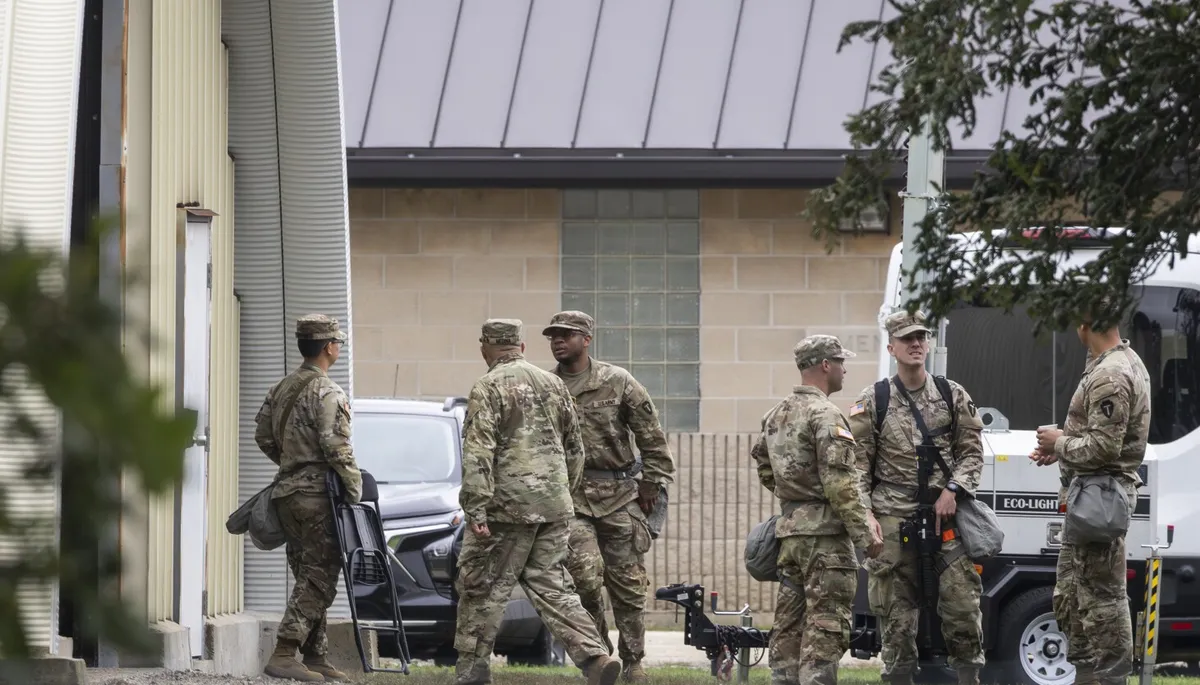
In a pivotal legal decision, U.S. District Judge April Perry ruled against the Trump administration's plans to deploy National Guard troops in Illinois, centering her judgment on the concept of credibility. The case arose amidst tensions surrounding President Donald Trump’s controversial immigration policies and claims of unrest in the state. Judge Perry expressed skepticism towards the administration's perspective, stating that their characterization of events in Chicago was "simply unreliable."
After a lengthy hearing that extended over three hours at the Dirksen Federal Courthouse, Judge Perry issued a temporary order prohibiting the federalization and deployment of the National Guard in Illinois. She highlighted the absence of "credible evidence" to support claims of an imminent rebellion in the state, asserting that Trump had not demonstrated an inability to enforce the laws of the United States. This ruling is effective for two weeks, with a follow-up hearing scheduled for October 22 to assess the need for an extension.
In response to the ruling, Illinois Governor JB Pritzker emphasized the importance of the court's confirmation that "Donald Trump is not a king" and that "his administration is not above the law." He reiterated that there is no credible evidence of rebellion in Illinois and that the National Guard has no place in the streets of cities like Chicago. Additionally, Illinois Attorney General Kwame Raoul remarked on the national significance of this decision, suggesting it raises critical questions about state sovereignty and the limits of presidential authority in militarizing urban areas.
The hearing represented a significant legal confrontation between Trump and Illinois' Democratic leaders, including Pritzker, Raoul, and Chicago Mayor Brandon Johnson. Raoul and Johnson observed the proceedings from the gallery, highlighting the case's relevance in the context of Trump’s push to deploy troops in historically Democratic strongholds. Furthermore, similar arguments were also presented in the 9th U.S. Circuit Court of Appeals regarding troop deployment in Oregon.
During her ruling, Judge Perry referenced recent events at the same courthouse that undermined the credibility of the Department of Homeland Security (DHS). She noted that four separate legal decisions within a short timeframe had cast doubt on DHS's assessments of the situation in Chicago. Perry emphasized that the ongoing peace outside the Broadview ICE facility had persisted for 19 years until federal agents intervened this summer, questioning the justification for the National Guard's deployment.
Despite Perry's ruling, approximately 200 troops from Texas and 14 from California had already begun their deployment, joining around 300 federalized Illinois National Guard troops. When asked about the ruling's impact on these troops, Raoul indicated that a temporary restraining order was in effect, which should prevent their active involvement in the state. He asserted that it was the responsibility of the Trump administration to comply with the judge's order.
During the hearing, Judge Perry rigorously questioned Eric Hamilton, the Justice Department attorney defending the troop deployment. She challenged him on the administration's claims of "brazen new hostility" towards federal personnel, pointing out the lack of violence at the Broadview ICE facility prior to federal actions. Perry also scrutinized the administration's attempts to frame local protests as a justification for military intervention.
With the upcoming hearing set for October 22, the implications of Judge Perry's ruling extend beyond Illinois, potentially influencing how future administrations approach the deployment of federal troops in urban settings. As the legal battle unfolds, the question remains whether the Trump administration will be able to justify its actions in light of the court's skepticism regarding its credibility and the lack of concrete evidence.